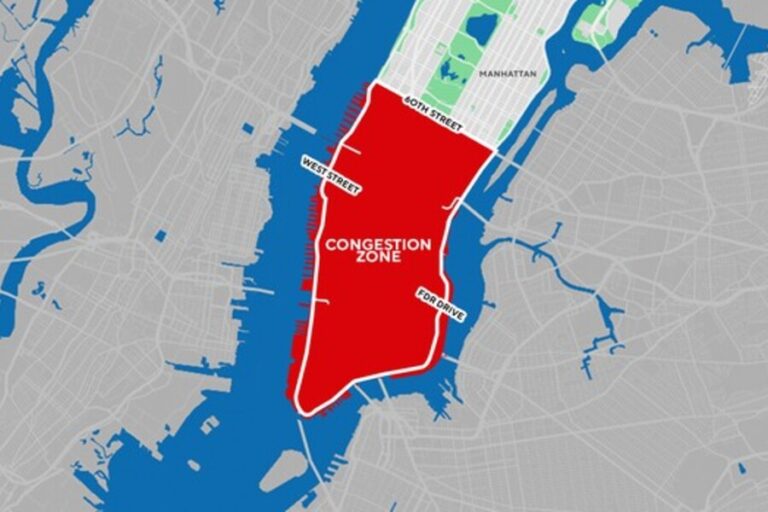New York City’s congestion pricing plan is set to begin as scheduled this Sunday, January 5, according to MTA Chair and CEO Janno Lieber. The announcement follows a ruling earlier in the day by Federal Judge Leo Gordon, who partially sided with New Jersey in its lawsuit against the tolling initiative. Despite the legal challenges, Lieber confirmed that the $9 toll for vehicles entering Manhattan below 60th Street will proceed.
Judge Gordon’s opinion raised concerns about the Federal Highway Administration’s handling of environmental considerations, particularly regarding the allocation of mitigation funds to New Jersey communities. However, Lieber asserted that the ruling supports the program’s continuation, emphasizing that it does not include an injunction to halt the implementation.
“We’re gratified that on virtually every issue, Judge Gordon agreed with the New York federal court and rejected New Jersey’s claims,” Lieber stated. “The decision does not interfere with the program’s scheduled implementation this coming Sunday.”
Governor Kathy Hochul expressed similar confidence, declaring that the program would move forward. However, attorneys representing New Jersey interpreted the ruling differently. Randy Mastro, a lawyer for the state, argued that the decision effectively blocks the tolling plan, citing the judge’s findings of deficiencies in the environmental assessment process. Bruce Nagel, representing other plaintiffs, suggested the ruling could lead to prolonged delays, possibly preventing congestion pricing from ever taking effect.
Legal experts and supporters of the program offered a contrasting perspective. Attorney John Reichman noted that the court did not issue an injunction, which would have been necessary to stop the plan from moving forward. “The decision doesn’t say or even imply that the program can’t go forward,” Reichman said, emphasizing that the remaining concerns could be addressed separately.
The congestion pricing debate has fueled tensions between New York and its suburban neighbors. Critics, including New Jersey Representative Josh Gottheimer, accused the MTA of failing to address the environmental and health impacts on New Jersey residents. “New York has completely failed to address and mitigate the cancer-causing pollution and traffic the Congestion Tax will wreak on Jersey families,” Gottheimer said, adding that the initiative prioritizes revenue over public health.
Meanwhile, efforts to delay the program have faced setbacks. Two federal judges in New York recently denied requests for injunctions sought by various plaintiffs, including Rockland County and the United Federation of Teachers. A delay could jeopardize the program’s future, particularly with President-elect Donald Trump, a vocal critic of the plan, set to take office later this month.
Under the revised plan, daytime tolls for vehicles with E-ZPass will cost $9 during peak hours, reduced from an initial proposal of $15. The tolling zone includes Manhattan south of 60th Street and major entry points such as the Lincoln and Holland tunnels. Off-peak tolls will be discounted by 75% to encourage overnight deliveries. Exemptions apply for emergency vehicles, commuter buses, and certain low-income drivers.
As the start date approaches, the controversy underscores the complexities of implementing congestion pricing. Balancing urban infrastructure needs with environmental concerns and regional equity remains a challenge. Despite the legal battles, New York officials remain steadfast in their commitment to the initiative, which aims to reduce traffic and generate funding for the city’s transit system. For now, the plan is moving forward, but the debate is far from over.
